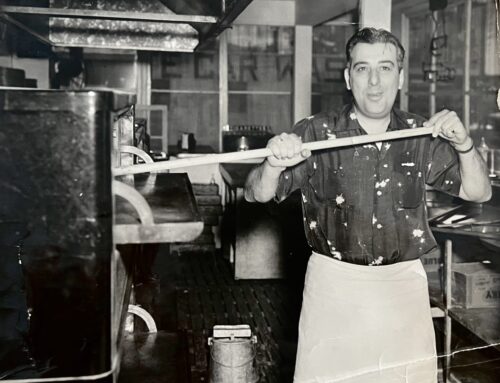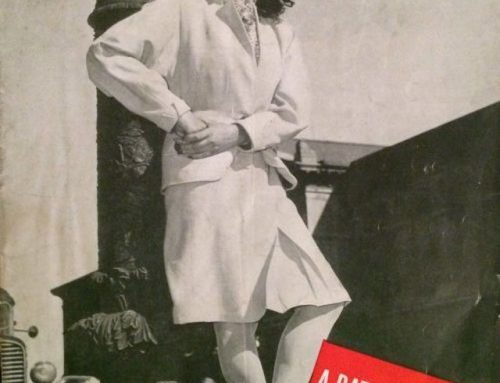Survivor Chic Canfora reflects on life then and now
By Amanda Loudin
Today marks fifty years since twenty-eight Ohio National Guardsman turned their rifles on a group of student protestors at Kent State University. For approximately thirteen seconds, the soldiers fired some sixty-seven rounds into the crowd, killing four students and wounding nine others.
Roseann “Chic” Canfora was a sophomore at the time, and witness to the tragedy. Her brother, Alan Canfora, was among the wounded. Chic was one of twenty-four students indicted—and later exonerated—for her activism during that period. She went on to earn a PhD at Kent State, and now teaches in the School of Journalism and Mass Communication.
The university had plans to commemorate the fiftieth anniversary of the violence, and the demonstrations that preceded it. Canfora is on the advisory and planning committee, and while this year’s anniversary event won’t go off as planned due to the pandemic, she and others will still mark the day. In a recent phone interview, I spoke with Canfora about May 4, how it has informed her life, and the parallels she sees between today’s political climate and the one that existed in 1970. The following has been edited for length and clarity.
Amanda Loudin: You stayed on at Kent State after May 4, earning your PhD and then joining the staff. Why?
Chic Canfora: My life was changed here. My narrow scope of the world was enlarged by other students—they raised my awareness of issues I didn’t understand. Why wouldn’t I be grateful to the place where I came of age? Regardless of surviving the shooting there—it’s a holy place. It’s where my friends died and where those of us who survived have returned to reflect for forty-nine years. Much of my life has been determined by how I responded and reflected to the events of May 4.
AL: How did the events of May 4 impact you going forward?
CC: If you look back on speeches I’ve given at commemorations over the years, you can almost see the arc of my anger. For a time, I thought I might be the last person to be so unforgiving of the Ohio National Guard. That’s still the case, but less so. One thing that has remained constant is my hope that at least one of them—before they’re gone—will tell us the truth of why they turned and lifted their weapons. Not just to shoot, but to continue shooting for thirteen seconds.
AL: How did May 4 play into your choice to teach journalism?
CC: A free press played a significant role in my life in the Sixties. This was a time when you could see both sides of a story from one source. It was at a time when we could protest the government. The role of a free press and the power of good journalism during Vietnam, Watergate, and all of the events of that time was extraordinary. It’s no surprise that I wanted to pursue a masters in journalism and inspire young journalists.
AL: How do you think May 4 would play out today?
CC: Similar to Parkland, Charlottesville, and other national tragedies. When we’re pitted against each other, and act on that, we’re jolted by the violence. These acts are usually inspired by divisive rhetoric, like that used by President Nixon and Governor Rhodes in 1970. They called anti-war protestors bums and vigilantes, and the worst type of people we harbor in America. Then they sent the National Guard onto campus to target us as the enemy. Today this would have played out similarly, as America has developed a tolerance for the violence that involves attacking one another.
AL: This was to be the fiftieth anniversary May 4 commemoration, and now the events are canceled due to the pandemic. How are you feeling about that loss?
CC: We had spent nearly two years planning a reunion that spanned fifty years. We had such a wonderful, diverse, meaningful program planned, and it’s a shame we won’t get to carry that out. That said, I’m fully supportive of the decision to keep us safe and do what is necessary—it’s necessary to avoid large gatherings, no matter how important. I have a mixture of disappointment and gratitude.
There were no conversations about postponing the fiftieth anniversary. It will be on May 4, 2020, with or without an official ceremony. We will still provide the education component and commemoration of those killed or wounded, and we can reflect on those lessons. That won’t change whether we do it live or through Zoom or other digital methods. The day will be meaningful for anyone who chooses to be part of it.
Really, for me, it’s never been about the anniversary activities, even though I participated and planned them. For me, every year and every day is about the memory of the day and how it guides my life. I’ll always be sad because I wonder what might have become of friends who were killed that day. Even when I’m busy, I’m pensive about that day, and I never know when I’ll break into tears because it’s personal and meaningful for me. I’m still very reflective of the memories I’ve never been able to shake. ■
More information about a virtual 50th anniversary commemoration can be found on Kent State’s website.
Amanda Loudin‘s work appears regularly in the Washington Post, NBC, Outside magazine and many other outlets. I grew up in Ohio and attended Kent State University.
Cover image: Chic Canfora (left) and her brother, Alan, with the National Guard in the background. Photo courtesy Chic Canfora.
Belt Magazine is a 501(c)(3) nonprofit organization. To support more independent writing and journalism made by and for the Rust Belt and greater Midwest, make a donation to Belt Magazine, or become a member starting at just $5 a month.






